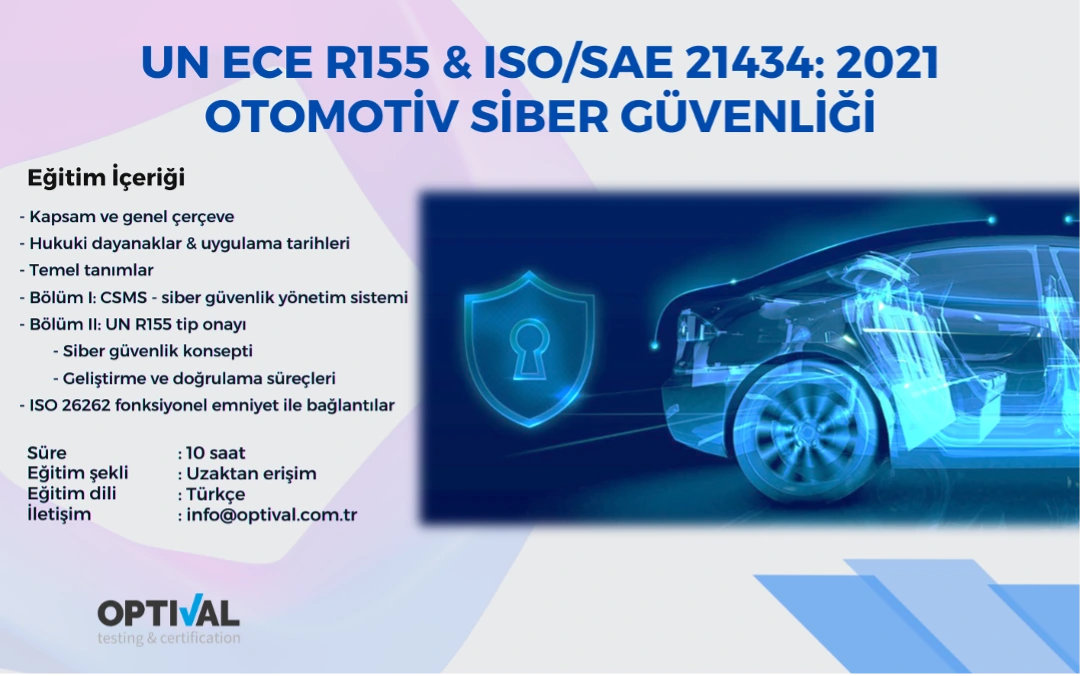UN ECE R155 and ISO/SAE 21434:2021 Automotive Cyber Security training will be held on April 14-15, 2025.
Başlıklar
UN ECE R155 and ISO/SAE 21434:2021 Automotive Cyber Security Training
We invite you to a high quality training from Optival’s cyber security experts. For our UN ECE R155 and ISO/SAE 21434: 2021 Automotive Cyber Security training to be held on April 14 – April 15, you can contact us via info@optival.com.tr or via the contact form below.
You can also get detailed information by calling +90 850 755 67 84.
Education Application
UN ECE R155: It’s Not Enough Just to Build a System, You Must Prove It Works!
Which work products do vehicle manufacturers need to prepare for UN ECE R155 compliance?
Do you face this question often? Is it enough to prepare a list of documents for R155 compliance?
R155 is a regulation, not a standard, and is a mandatory step for homologation.
This regulation expects vehicle manufacturers to establish and actively manage a cyber security management system (CSMS).
So how does the process work?
The vehicle manufacturer creates a CSMS describing how it manages vehicle cybersecurity. The homologation, cybersecurity or other relevant teams refer this management system to the technical service for evaluation and the technical service checks whether this system complies with the regulation. If compliant, the manufacturer receives the CoC (Certificate of Compliance).
Once the suitability of the organizational management system has been confirmed, the vehicle manufacturer reapplies to the technical service to evaluate the type of vehicle that it will put on the market in terms of cybersecurity, and the technical service evaluates the type of vehicle at this stage; in this audit, it wants to see that the work products and CSMS processes are implemented, that they actually work.
Once ECE R155 system approval and WVTA (vehicle type approval) have been obtained, vehicles can be placed on the market.
But R155 does not end here! Regulation is not a one-off certification process.
Reporting must be done annually to the technical service and/or the approval body.
Every 3 years the technical service and/or the approval body checks that the process is actively working.
Failure to follow the defined procedures can lead to withdrawal of the cybersecurity conformity of the vehicle type!
True compliance is not about having a management system suite of templates and forms; it is about creating a living culture of cybersecurity.

